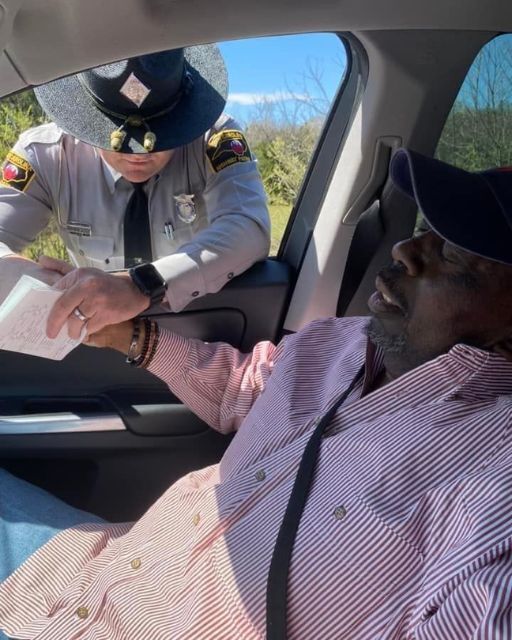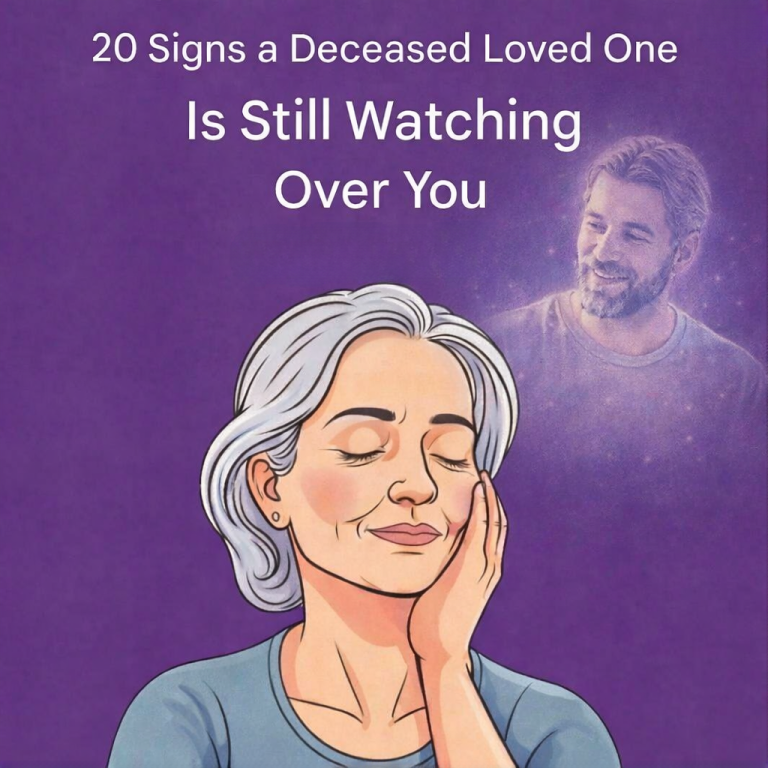
I swear I was only pulling off the highway for a minute—he said he was just feeling lightheaded.
“Probably nothing,” Cyrus mumbled.
That’s how he always was—downplaying everything. Even when he had that kidney scare last fall, he kept calling it “a cramp.”
But this time… this time felt different.
We were headed to his cousin’s memorial, almost four hours away. I offered to drive, but of course, Cyrus insisted. Said he knew the backroads better than GPS ever could.
And then—just twenty minutes out—he said he needed a break and pulled over.
That was thirty minutes ago.
I had run into the tree line to take a quick call from my daughter. When I came back, he was still in the driver’s seat, eyes closed, head tilted slightly like he’d just dozed off.
Except…
His chest wasn’t rising.
That’s when the patrol car rolled up behind us. I flagged the officer down before I could even process what was happening.
He approached calm, at first. You could tell he thought it was a routine stop.
Until he leaned in.
“Sir?” the officer said, tapping the window.
No response.
I watched the officer’s expression shift—from mild curiosity to instant, sharp concern.
He opened the door, reached across Cyrus, and checked for a pulse.
Still nothing.
Then he took Cyrus’s limp hand and tried to speak louder, shaking it gently.
“Sir, can you hear me?”
I wanted to scream but couldn’t get the words out.
The officer looked up at me, eyes narrowed.
“When’s the last time he said anything to you?”
And I—I had no good answer. I didn’t know. Maybe fifteen minutes ago?
Maybe longer?
Time had blurred.
The officer pulled out his radio, voice clipped, urgent.
He asked for medical backup.
Then Cyrus made a sound.
A low, almost imperceptible groan.
The officer froze, eyes locked on Cyrus’s face.
“Say that again,” he said. “Come on, buddy, talk to me.”
Cyrus’s mouth parted—
But no words came. Just a faint rasp, like he was trying to breathe through cotton.
The officer leaned in closer. “That’s it. Keep going. Stay with me.”
He gently tapped Cyrus’s cheek, trying to keep him awake.
I stepped closer, finally finding my voice.
“Cyrus? Can you hear me? It’s me, baby. I’m right here.”
His eyelids fluttered, then closed again. His body slumped further into the seat.
The officer turned to me. “We need to lay him flat. Help me get him out of the car.”
Together, we unbuckled him and eased him down onto the gravel shoulder. The officer checked again for a pulse, then began chest compressions—steady, urgent, practiced.
I dropped to my knees beside them, hands trembling, heart pounding.
“Come on, Cyrus,” I whispered. “You promised you’d be okay. You promised me.”
The sound of sirens grew louder—wailing, wailing, then closer, closer.
An ambulance pulled up, medics spilling out with equipment and calm, focused urgency.
The officer stepped back as they took over.
He looked at me then—eyes soft but serious.
“You did the right thing calling me. If you’d waited any longer…”
He didn’t finish the sentence. He didn’t have to.
They loaded Cyrus into the ambulance, still working on him, oxygen mask over his face.
One of the paramedics asked, “You riding with us?”
I nodded, stumbling forward.
The officer touched my arm gently. “He’s got a chance. Hang on to that.”
I climbed in, my hand never leaving Cyrus’s.
And as the ambulance sped down the road, I whispered over and over, “Stay with me. Please, just stay.”
The ride to the hospital felt both endless and impossibly fast. I sat beside Cyrus, gripping his hand like it was the only thing tethering him to this world.
The paramedic monitoring his vitals looked calm, but I could see the tightness in his jaw. “He’s stable for now,” he said quietly. “But it was close.”
Close.
Too close.
When we reached the ER, the doors flung open. They wheeled Cyrus through a maze of hallways, medical staff already shouting terms I didn’t understand—BP, oxygen levels, possible cardiac episode.
A nurse gently stopped me at the double doors. “You’ll have to wait out here.”
I nodded, even though I wanted to scream. Wait? After what just happened?
I sank into a stiff plastic chair, heart thudding like it wanted out of my chest. Minutes passed. Then hours. I must’ve texted my daughter a dozen times, telling her not to panic—but of course she did.
She offered to drive down, but I told her to wait. I needed her calm for now. One of us had to be.
Eventually, a doctor approached. Mid-40s, tired eyes, clipboard clutched in one hand.
“You’re with Mr. Harris?”
I stood up so fast the chair squeaked behind me. “Yes. I’m his partner. Is he okay?”
The doctor offered a faint, reassuring smile. “He had a minor heart attack. Given how long he went without oxygen, it’s remarkable he’s conscious now. You acted quickly, and that officer’s response made all the difference.”
“He’s awake?”
“He is. Groggy. But asking for you.”
Those words melted me.
I followed the doctor through the ICU, past quiet beeping machines and drawn curtains. When we reached his room, I could barely breathe.
There he was. Pale, tired, hooked up to a dozen monitors—but alive. He turned his head, and when our eyes met, he gave me the faintest smile.
“Told you I just needed a minute,” he rasped.
I laughed, tears spilling freely. “You absolute idiot.”
His hand twitched, searching for mine. I slipped my fingers into his, holding on tightly.
“You scared me,” I whispered. “More than ever before.”
“Not going anywhere,” he said, squeezing back weakly. “Not if I can help it.”
And right then, in that sterile, humming hospital room, I knew—somehow, against the odds—we still had more time.
And I was never going to waste a second of it.



